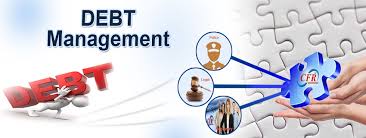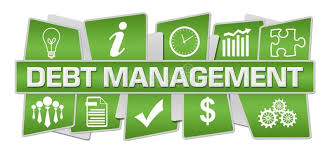The Olympic Games have long been a symbol of global unity, athletic excellence, and cultural celebration. Since their ancient inception in Greece, the Games have evolved into a massive international event, showcasing the pinnacle of human physical achievement and fostering a spirit of friendly competition. As we look forward to Paris 2024, the anticipation and…
Navigating Debt Management and Credit Score Improvement.
In today’s financial landscape, Navigating Debt Management and Credit Score Improvement. is a crucial aspect of maintaining a healthy financial profile. Your credit score, a numerical representation of your creditworthiness, plays a pivotal role in various aspects of your financial life, from securing loans to renting an apartment. This guide aims to provide you with a comprehensive understanding of debt management and how it impacts your credit score. By following the strategies outlined here, you can take control of your finances and work towards improving your credit score.

Understanding Debt Management:
- Types of debt:
Debt comes in various forms, each with its own implications for your credit score. Understanding these types of debt is essential for effective management:
- Secured Debt: Backed by collateral, such as mortgages or car loans.
- Unsecured Debt: Not backed by collateral, such as credit card debt or personal loans.
- Revolving Debt: Debt with no fixed repayment term, like credit card balances.
- Installment Debt: Debt with fixed repayment terms, such as student loans or auto loans.
- Importance of Credit Score:
Your credit score is a three-digit number that reflects your creditworthiness. It is calculated based on factors such as payment history, credit utilization, length of credit history, types of credit, and new credit accounts. A higher credit score indicates lower credit risk, making you more attractive to lenders and potentially qualifying you for better loan terms. - Factors Affecting Credit Score:
Several factors influence your credit score, including:
- Payment history is the most significant factor, reflecting your track record of making on-time payments.
- Credit Utilization: The ratio of your credit card balances to your credit limits.
- Length of Credit History: How long you’ve been using credit.
- Types of Credit: The mix of credit accounts you have, such as credit cards, loans, and mortgages.
- New Credit: The number of recently opened credit accounts and credit inquiries.

Strategies for Debt Management and Credit Score Improvement:
- Create a Budget:
Start by assessing your income and expenses to create a budget that allows you to allocate funds towards debt repayment. Prioritize high-interest debt while ensuring you cover essential expenses and savings goals. - Pay On Time, Every Time:
Consistently making on-time payments is crucial for maintaining a positive payment history, which is the most significant factor influencing your credit score. Set up automatic payments or reminders to ensure you never miss a due date. - Reduce Credit Card Balances:
High credit card balances relative to your credit limits can negatively impact your credit score. Aim to keep your credit utilization ratio below 30% by paying down balances and avoiding unnecessary spending. - Avoid Opening Too Many New Accounts:
Each new credit account or inquiry can temporarily lower your credit score. Limit new credit applications unless necessary and focus on managing your existing accounts responsibly. - Diversify Your Credit Mix:
Having a diverse mix of credit accounts, such as credit cards, installment loans, and mortgages, can positively impact your credit score. However, only pursue new credit accounts when appropriate and manageable. - Monitor Your Credit Report Regularly:
Check your credit report regularly to identify any errors or fraudulent activity that could negatively impact your credit score. Dispute inaccuracies promptly to ensure your credit report reflects accurate information. - Consider Debt Consolidation or Refinancing:
If you’re struggling to manage multiple debts, consider consolidating them into a single loan with a lower interest rate. Refinancing existing loans can also help lower your monthly payments and streamline your debt repayment strategy.

Effective debt management is essential for maintaining a healthy financial future and improving your credit score. By understanding the factors that influence your credit score and implementing strategies to manage debt responsibly, you can take control of your finances and work towards achieving your long-term financial goals. Remember, improving your credit score is a gradual process that requires patience and discipline, but the rewards of financial stability and flexibility are well worth the effort.




Can you be more specific about the content of your article? After reading it, I still have some doubts. Hope you can help me.
Awsome post and right to the point. I am not sure if this is actually the
best place to ask but do you folks have any ideea where to hire some professional writers?
Thank you 🙂 Escape rooms hub
You have mentioned very interesting details! ps nice internet
site.!